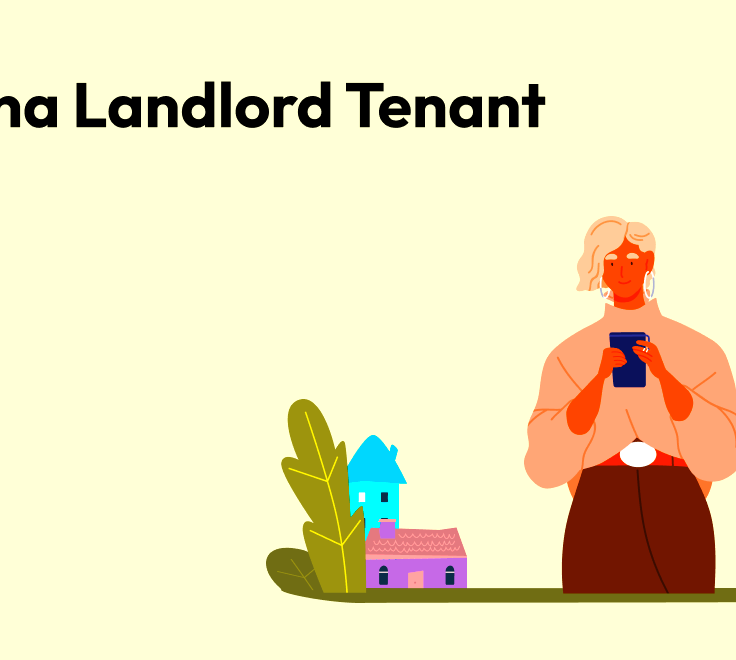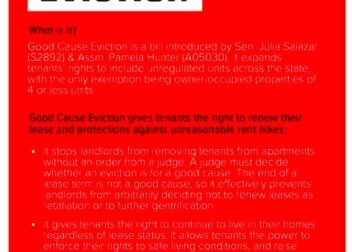Guide to Arizona’s Commercial Landlord Tenant Laws
When it comes to exploring the realm of real estate in Arizona knowing the dynamics between landlords and tenants is essential. Whether you’re a business owner leasing a location or a landlord renting out commercial properties being well informed about the regulations that govern these interactions can help you avoid conflicts and legal issues. The commercial landlord tenant laws in Arizona establish the guidelines for leases, responsibilities and dispute resolutions ensuring that both parties are aware of their rights and duties. In this article we will delve into these laws thoroughly offering valuable insights to assist you in navigating this intricate field with ease.
Understanding Commercial Lease Agreements
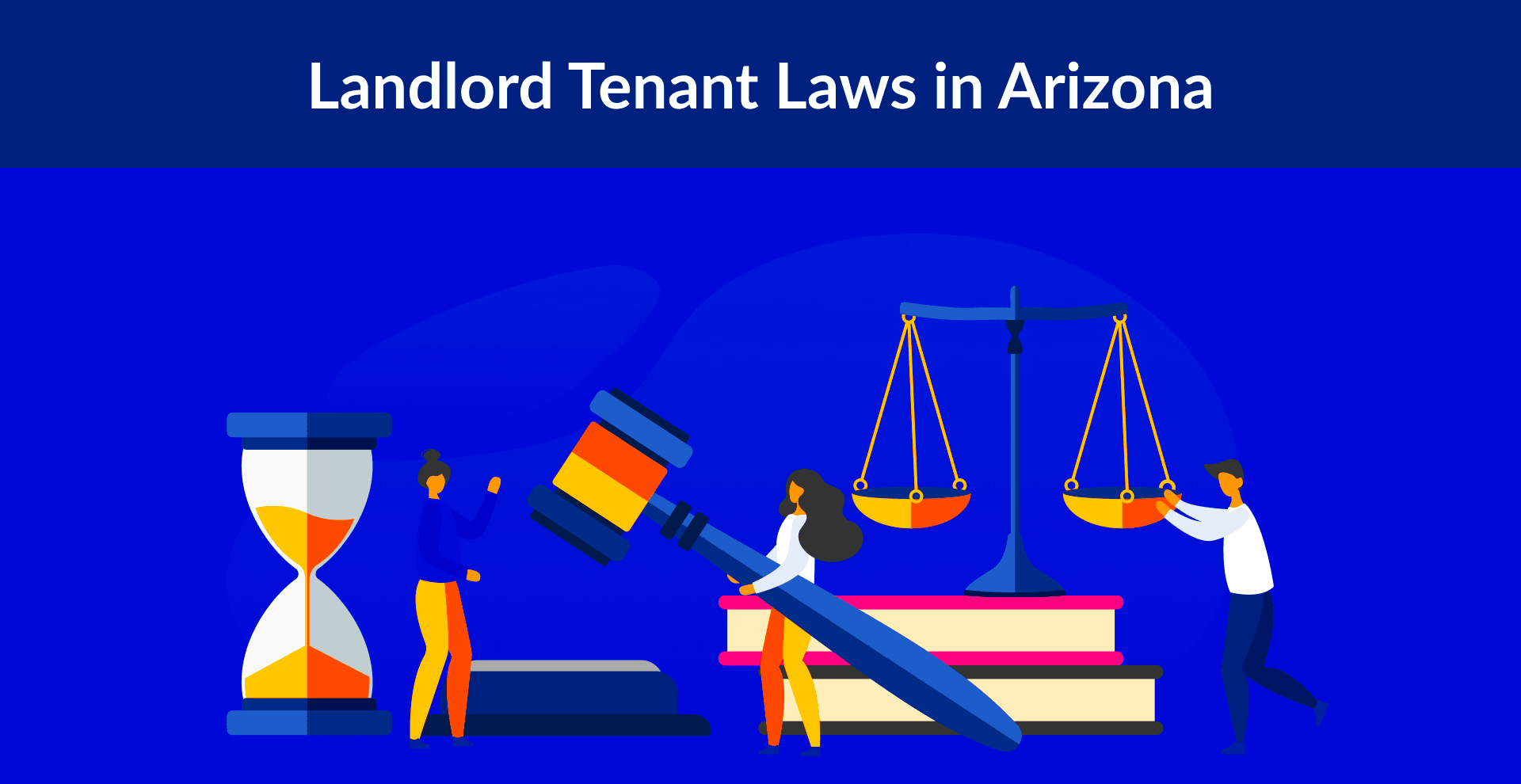
Commercial lease contracts play a role in outlining the conditions between property owners and renters. Unlike residential rental agreements these contracts tend to be more comprehensive and customized to meet specific business requirements. In Arizona a lease usually encompasses several components.
- Lease Duration: Specifies the length of the lease, which can range from a few months to several years.
- Rent Terms: Details on the amount of rent, payment schedule, and any adjustments or increases.
- Property Use: Clearly defines how the tenant can use the space, ensuring it aligns with zoning laws and business activities.
- Maintenance Responsibilities: Outlines who is responsible for maintaining the property and handling repairs.
- Termination Conditions: Conditions under which the lease can be terminated early, including notice periods and penalties.
Based on what I’ve seen clear agreements help avoid confusion. For example a tenant encountered problems because of unclear maintenance terms resulting in a major disagreement. Having specific and detailed provisions in your lease can help prevent issues like that making a carefully written lease contract essential, for running a business smoothly.
Key Responsibilities of Landlords in Arizona
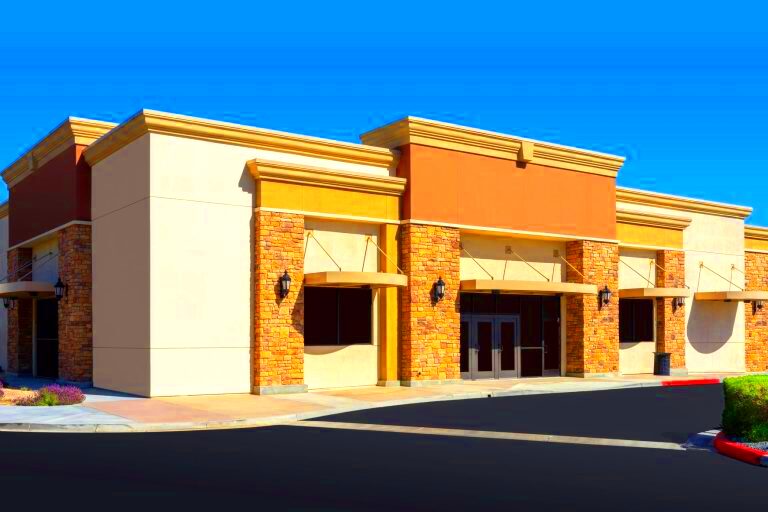
As a property owner in Arizona you have various duties to uphold the condition of your commercial space and support tenants in running their businesses smoothly. Here are key responsibilities to keep in mind.
- Maintaining the Property: Landlords must ensure that the property is safe and habitable, complying with local health and safety codes. This includes regular maintenance and prompt repairs of any issues.
- Providing Necessary Services: Depending on the lease agreement, landlords may need to provide essential services such as water, heating, and cooling. Ensuring these are functional is crucial for tenant satisfaction.
- Respecting Tenant Rights: Landlords must respect the tenant’s right to quiet enjoyment of the property, which means not interfering with their business operations or access to the leased space.
- Handling Security Deposits: Security deposits must be managed in accordance with the lease terms and state regulations, ensuring proper documentation and timely return at the end of the lease term.
- Adhering to Lease Terms: Landlords should honor all terms specified in the lease agreement, including those related to rent increases, property modifications, and renewal options.
Looking back at my experiences with landlords I’ve noticed that those who put in the effort to keep their properties well maintained and communicate openly with tenants tend to have lasting and stable relationships. Taking this approach not only helps prevent conflicts but also fosters trust, between landlords and tenants.
Essential Duties of Tenants in Commercial Leases
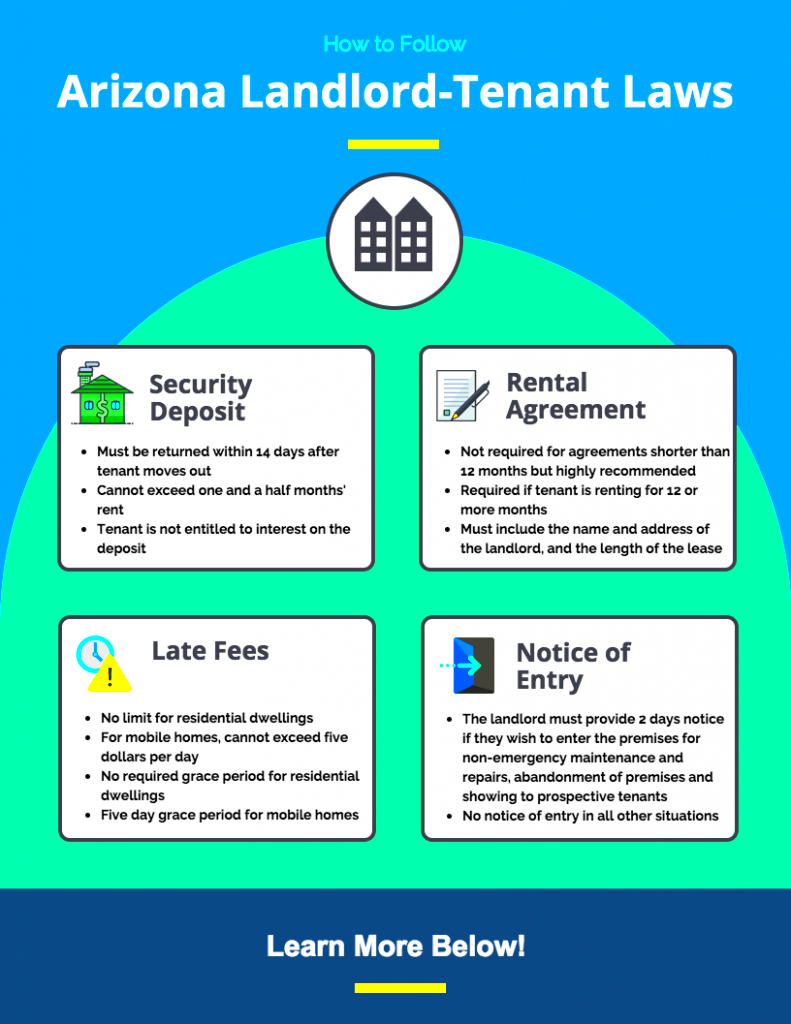
When it comes to a lease agreement tenants have a lot on their plate besides covering the rent. These obligations play a role in keeping the property well maintained and ensuring the business runs without a hitch. Let’s delve into these key responsibilities.
- Rent Payment: Timely and full payment of rent is a fundamental duty. Delays or missed payments can lead to penalties or even lease termination. Setting up automatic payments can help ensure you never miss a due date.
- Property Maintenance: Tenants are often responsible for keeping the property in good condition. This includes regular cleaning, minor repairs, and addressing any damage caused by their business operations. I recall a business owner who had to bear the cost of extensive repairs due to neglect, which could have been avoided with regular upkeep.
- Adhering to Lease Terms: Complying with all terms outlined in the lease, including those related to property use, modifications, and subleasing, is crucial. A tenant who deviates from these terms can face legal consequences or disputes.
- Insurance: Obtaining appropriate insurance coverage is often required. This not only protects your business but also minimizes potential liabilities for property damage or accidents that occur on the premises.
- Communication with Landlord: Maintaining open lines of communication with the landlord helps address issues promptly and ensures that both parties are on the same page regarding property use and maintenance.
In my observation tenants who communicate with their landlords and fulfill their obligations tend to have a lease period that is smoother and more fruitful. It’s similar to a collaboration where both sides play a role in achieving a positive result.
Lease Termination and Eviction Procedures
Ending a lease or dealing with eviction can be an overwhelming experience. Arizona has laws in place that set out procedures to ensure these matters are dealt with fairly and within the boundaries of the law. Here’s a helpful guide to navigating through these processes.
- Lease Termination: Terminating a lease early usually requires a valid reason and adherence to the notice period specified in the lease agreement. Common reasons include non-payment of rent or violation of lease terms. I once worked with a tenant who needed to terminate their lease due to a business closure. Understanding the lease terms and providing proper notice helped them avoid additional penalties.
- Eviction Procedures: If a tenant fails to meet their obligations, landlords can initiate eviction proceedings. The process involves several steps:
- Notice of Termination: The landlord must provide a written notice specifying the reason for termination and the time frame for vacating the premises.
- Filing a Lawsuit: If the tenant does not vacate, the landlord may file a lawsuit in court. This step is often the last resort and should be preceded by attempts to resolve the issue amicably.
- Court Proceedings: A court hearing will determine whether the eviction is justified. Both parties will have the chance to present their case.
- Enforcement: If the court rules in favor of the landlord, the tenant will be given a deadline to vacate. Failure to comply can lead to enforcement by law enforcement.
- Negotiation and Mediation: Often, issues can be resolved through negotiation or mediation before reaching the eviction stage. Open communication and willingness to find common ground can sometimes avert a lengthy legal process.
Having seen the impact of lease terminations from both perspectives I can vouch for the significance of grasping your lease agreements and taking swift action to resolve any concerns. While it can be a tough scenario effective communication and legal awareness can truly make a difference.
Dispute Resolution Options
Conflicts between property owners and renters happen often, but being aware of your choices for resolving them can assist you in handling these situations smoothly. In Arizona there are several ways to settle disputes, here are some approaches you can consider.
- Negotiation: The first step in resolving a dispute is often direct negotiation between the parties involved. This can sometimes lead to a mutually acceptable solution without the need for formal legal proceedings.
- Mediation: Mediation involves a neutral third party who helps facilitate discussions and negotiations between the landlord and tenant. This method is generally less formal and can lead to a quicker resolution. I’ve seen many disputes settled through mediation, as it encourages open dialogue and understanding.
- Arbitration: Arbitration is a more formal process where a neutral arbitrator makes a binding decision on the dispute. This can be faster and less costly than going to court, though it does involve giving up some control over the outcome.
- Legal Action: If other methods fail, pursuing legal action through the courts may be necessary. This involves filing a lawsuit and potentially going through a trial. It’s generally considered a last resort due to the time and expense involved.
Based on what I’ve seen settling disagreements peacefully through talks or mediation can be a real time and money saver. That said knowing all your choices inside out is crucial so you’re ready for whatever comes your way.
Security Deposits and Financial Protections
When it comes to commercial leases security deposits are essential for safeguarding the interests of both landlords and tenants. They act as a cushion for landlords to cover property damage or unpaid rent and provide tenants with reassurance about their financial obligations. Let’s explore the aspects of security deposits and financial safeguards in Arizona.
- Amount of Security Deposit: Arizona law does not set a maximum limit for security deposits in commercial leases, which means the amount is typically negotiated between the landlord and tenant. It’s important for both parties to agree on a fair amount that reflects the potential risks and maintenance needs.
- Usage of Security Deposit: The security deposit can be used to cover damages beyond normal wear and tear, unpaid rent, or other financial obligations outlined in the lease agreement. I’ve seen instances where a tenant’s deposit was partially used for repairs, which was clearly stated in the lease, helping avoid disputes.
- Return of Security Deposit: Upon lease termination, the landlord is required to return the deposit within a specified time frame, usually within 14 days, minus any deductions for damages. Clear documentation and communication regarding the condition of the property at the end of the lease can help ensure a smooth return process.
- Financial Protections for Tenants: Tenants should ensure they receive a detailed list of deductions from their security deposit and any remaining balance. Keeping records of the property’s condition at the time of move-in and move-out can also safeguard against unfair deductions.
From what I’ve seen being upfront about the terms and having a comprehensive inventory can really make dealing with deposits easier. Clear communication and keeping records are key to preventing any issues down the line.
Recent Changes and Updates in the Law
The field of commercial real estate law is constantly changing, making it important for landlords and tenants to keep abreast of the latest developments. Here are some noteworthy updates regarding Arizonas laws on commercial landlords and tenants.
- Increased Transparency Requirements: Recent updates have focused on making lease agreements more transparent, requiring landlords to provide detailed information about lease terms, maintenance responsibilities, and any additional fees. This change aims to ensure that both parties fully understand their obligations from the outset.
- Enhanced Protection for Tenants: New regulations have been introduced to provide greater protection for tenants, particularly concerning unjustified evictions and the handling of security deposits. These protections help create a more balanced and fair leasing environment.
- Amendments to Eviction Procedures: There have been adjustments to the eviction process, making it more streamlined and ensuring that tenants have ample time to address issues before facing legal action. This change reflects a growing emphasis on resolving disputes amicably and fairly.
- Updates on Rent Control Measures: While Arizona generally does not have rent control laws, recent discussions have led to proposals for more comprehensive regulations to address rent increases. Keeping an eye on local legislation can help you stay ahead of any potential changes that could impact your lease terms.
In my opinion keeping an eye on legal developments and being proactive has proven to be advantageous. Its akin to getting ready for surprises as it enables you to adjust swiftly and steer clear of potential challenges.
Frequently Asked Questions
When it comes to landlord and tenant matters in a commercial setting it’s normal to have inquiries. Here are a few frequently asked questions along with their responses to address common issues.
- What is the typical length of a commercial lease in Arizona? Commercial leases can vary widely, typically ranging from 1 to 10 years, depending on the needs of the business and the terms negotiated. Longer leases often provide stability, while shorter leases offer more flexibility.
- Can a landlord increase rent during the lease term? Generally, rent increases are only possible if explicitly allowed in the lease agreement. Many leases include fixed rent amounts for the duration of the lease, while others may have clauses allowing for periodic increases.
- What should I do if I disagree with a security deposit deduction? If you disagree with deductions from your security deposit, request a detailed statement from the landlord. You can also document the condition of the property and seek mediation or legal advice if necessary to resolve the dispute.
- How can I protect my business if I need to terminate the lease early? To protect your business, review the lease agreement for any early termination clauses and discuss your situation with the landlord. Negotiating a mutual agreement or finding a subtenant can help minimize potential penalties.
- Are there any resources for understanding recent legal changes? Yes, local real estate attorneys, business associations, and online legal resources can provide updates and interpretations of recent legal changes. Staying connected with these resources ensures you’re informed about any new developments.
Addressing these inquiries can shed light on the intricacies of leasing. Drawing from personal experiences I believe that staying knowledgeable and taking the initiative to seek clarification can greatly impact how lease contracts are handled.
Conclusion
Grasping the intricacies of Arizonas laws governing commercial landlords and tenants is vital for navigating the nuances of lease agreements and property management. Whether you’re a landlord ensuring adherence to regulations or a tenant safeguarding your business being aware of your rights and obligations can help prevent misunderstandings and conflicts. From managing deposits to staying abreast of legal updates every aspect is crucial in fostering a leasing relationship. In my experience I’ve witnessed how clear contracts and proactive communication can greatly impact outcomes. Staying well informed and ready enables you to handle your lease efficiently and concentrate on what truly matters—achieving success, in your business. Embrace these valuable insights to enhance the efficiency and productivity of your leasing journey.
